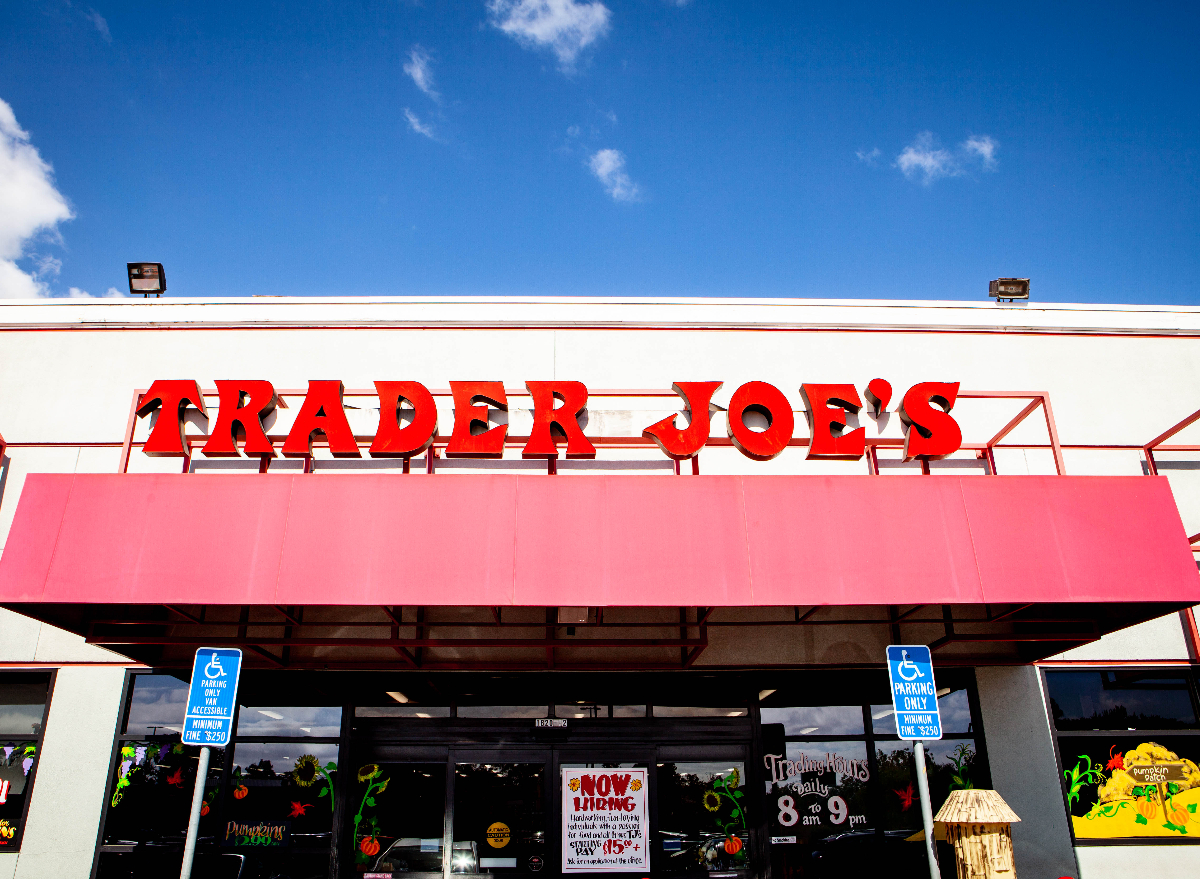Shoppers Are Reporting a Major Issue With Trader Joe's Baked Goods

Trader Joe's continues to excite fans with inventive and unique food items, from its specialized seasoning blends to the trendy Pizza Bread Cheese. But the chain seems to be letting down patrons with more basic grocery items as customers report a recurring issue with bread and bakery products.
In a recent thread on the Trader Joe's subreddit, a customer shared a picture of flour tortillas from the grocery chain that appeared to be speckled with mold. And the customer, who said the picture was taken two days after purchasing the tortillas, ended up being far from the only one who has noticed this type of issue with certain Trader Joe's food items.
RELATED: 8 Things Trader Joe's Does Better Than Other Grocery Chains, Say Customers
Fellow Redditors responded to the post, reporting that they have also purchased tortillas and bread products from Trader Joe's, just to see them quickly mold before they can actually use them. Luckily for Trader Joe's fans, these customers offered several helpful suggestions on how to mitigate the problem.
The most common recommendation by far was to store tortillas and other bread products in the fridge or freezer, rather than on the counter or in the cupboard.
"I freeze them until I need them," one Reddit user commented, referring to the Trader Joe's tortillas. "You can also prolong them by putting them in the fridge. Yes, they will go bad quick if you leave them on the counter. Many of their breads are that way too."
Another common suggestion was to go through bread products further back in the display and purchase packages with later expiration dates when they're available in order to get fresher items.
Felicia Wu, Ph.D., a John A. Hannah Distinguished Professor at Michigan State University and food safety expert, said that "the risk level of consuming mold depends on the type or species of the mold or fungus." Most foodborne fungi don't produce mycotoxins, fungal toxins that can cause adverse health effects, so they may not be harmful in and of themselves, Wu said.
"However, in some individuals, they may cause allergies, particularly if the fungal spores are inhaled," Wu added. "More generally, if a food is already moldy, this may indicate the presence of other microbes such as bacteria that could mean that the food is not safe to eat for other reasons – bacterial pathogens cause a large burden of foodborne disease worldwide. I do not recommend eating food with visible mold growing on it."
The cause of the molding issue was not immediately clear, but some customers wondered if it had anything to do with Trader Joe's approach to preservatives in its food items. The chain largely avoids using artificial preservatives in favor of more natural alternatives like sugar, salt, vinegar, celery juice, and rosemary extract, according to the Trader Joe's website.
Wu agreed that the fact that Trader Joe's does not use artificial preservatives in its food could be a possible reason that some of the chain's products mold more quickly, but noted that "it is impossible to state this for certain."
"Preservatives keep the food free from microbial pathogens, including fungi, for a longer period of time" through processes such as inactivating microbes and reducing moisture, which lessens the possibility of microbes growing, Wu said.
While the mold issue evidently hasn't stopped many Trader Joe's customers from purchasing tortillas and bread, others indicated that they were completely fed up.
"I've given up buying their tortillas, I swear they're moldy by the time I get home," a user wrote in the thread.
"I'm done with [Trader Joe's] bread," another commented. "I swing by the bakery before or after my shopping trip and it's so worth the extra dollar for fresh bread that doesn't mold in 48 hours."
Trader Joe's was contacted for comment on the reported mold issues but did not immediately respond.








